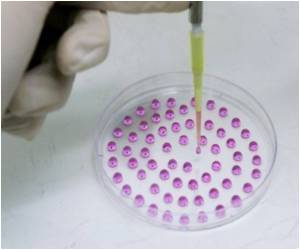By mimicking a rare genetic disorder in a dish, they can rewind the internal clock of a mature cell and drive it back into an adult stem-cell stage, Harvard researchers have found.

"This certainly has implications for personalized medicine, especially in the area of tissue engineering," Nature quoted Bjorn Olsen, of the Harvard Medical School, as saying.
Damian Medici, an instructor of medicine at Harvard Medical School and Beth Israel Deaconess Medical Center, found that, unlike normal skeletal tissue, the pathological cartilage and bone cells from these patients contained biomarkers specific for endothelial cells-cells that line the interior of blood vessels.
This led him to question whether or not the cartilage and bone growing in soft tissues of FOP patients had an endothelial origin.
Medici and his colleagues transferred the mutated gene that causes Fibrodysplasia Ossificans Progressiva (FOP), into normal endothelial cells. Unexpectedly, the endothelial cells converted into a cell type nearly identical to what are called mesenchymal stem cells, or adult stem cells that can differentiate into bone, cartilage, muscle, fat, and even nerve cells.
The researchers also found that instead of using the mutated gene to induce the transformation, they could incubate endothelial cells with either one of two specific proteins whose cellular interactions mimicked the effects of the mutated gene, providing a more efficient way to reprogram the cells.
Advertisement
"There are some important differences. However, they appear to have all the potential and plasticity of mesenchymal stem cells," said Medici.
Advertisement











